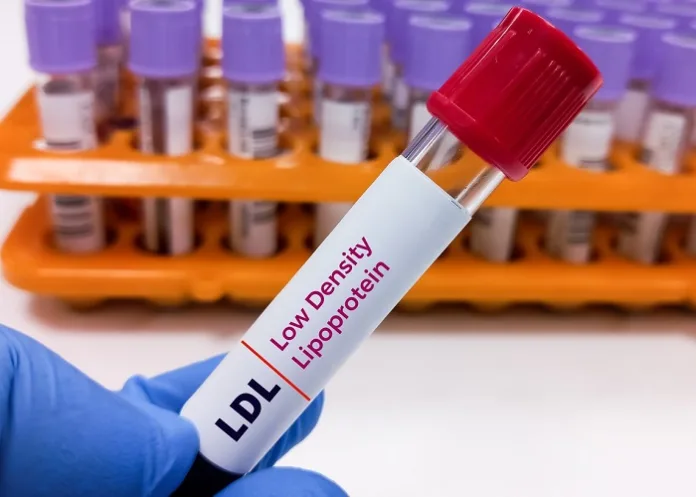SA heart groups are calling for stricter low-density lipoprotein cholesterol (LDL-C) targets and lipoprotein(a) (Lp(a)) testing to be incorporated into routine practice for preventing atherosclerotic cardiovascular disease (ASCVD).
Writing in the SA Medical Journal, EQ Klug and FJ Raal say the call from the South African Heart Association and the Lipid and Atherosclerosis Society of Southern Africa (LASSA) aligns with updated European guidelines emphasising aggressive LDL-C lowering and Lp(a) assessment for improved ASCVD risk management.
Sharper LDL-C goals for high-risk individuals
The latest European Society of Cardiology (ESC)/European Atherosclerosis Society (EAS) guidelines, published in 2019, recommend lower LDL-C targets for patients at very high ASCVD risk compared with the 2018 SA dyslipidaemia guideline.
These stricter targets are:
• <1.4 mmol/L for very high-risk patients
• <1 mmol/L for very high-risk patients who have experienced recurrent cardiovascular events.
The two organisations highlight the importance of clinicians familiarising themselves with these and other LDL-C goals (high-risk <1.8 mmol/L, moderate <2.6 mmol/L, low <3 mmol/L) and integrating them into treatment decisions.
Early intervention and LDL-C targeting, particularly after an acute coronary syndrome (ACS), are crucial for optimal outcomes, they write.
Treatment landscape
Fortunately, a diverse armamentarium of therapies is available to SA healthcare providers and patients to effectively lower LDL-C and achieve target levels.
These include:
• oral statins: the foundation of LDL-C-lowering therapy
• ezetimibe: an additional therapy for patients who require further LDL-C reduction beyond statins alone
• Proprotein convertase subtilisin/kexin type 9 (PCSK9) inhibitor drugs: injectable medications (every two weeks: alirocumab and evolocumab or six -monthly: inclisiran) that offer significant additional LDL-C lowering, particularly for patients with familial hypercholesterolaemia or inadequate response to statins.
While PCSK9 inhibitors are highly effective, their higher cost necessitates maximising oral therapies first.
SA Heart and LASSA are committed to advocating for increased affordability of these novel agents to ensure broader access.
Rising role of Lp(a) testing
Mounting evidence underscores the independent risk factor that Lp(a) poses for ASCVD and aortic valve stenosis, even in individuals with low LDL-C levels. Elevated Lp(a) levels (>30 mg/dL or 75 nmol/L) warrant increased vigilance.
SA Heart and LASSA strongly recommend measuring serum Lp(a) at least once in all adults, especially those with:
• familial hypercholesterolaemia
• family history of premature ASCVD
• moderate ASCVD risk (as a risk enhancer).
Lp(a) levels are mainly genetically determined. Levels increase until the age of five years and gradually increase to adult levels by 20, and then remain fairly constant throughout life.
Importantly, the 50th percentile in black people is equated with the 80th percentile in white people.
While lifestyle modifications have minimal impact on Lp(a), aggressive LDL-C lowering remains the cornerstone of mitigating Lp(a)-related risk.
Promising new therapies specifically targeting Lp(a) are under investigation, with ongoing trials to confirm their clinical benefit in ASCVD and aortic stenosis prevention.
Conclusion
By adopting stricter LDL-C targets, incorporating Lp(a) testing into clinical practice and optimising LDL-C-lowering therapy with available options, we can significantly enhance ASCVD prevention efforts and improve patient outcomes.
SA Heart and LASSA remain committed to providing guidance and advocating for wider access to effective treatment strategies for the benefit of all South Africans.
E Q Klug – cardiologist, Netcare Sunninghill and Sunward Park hospitals, Johannesburg; School of Clinical Medicine, University of the Witwatersrand; Division of Cardiology, Charlotte Maxeke Academic Hospital.
F J Raal – director, Carbohydrate and Lipid Metabolism Research Unit, University of the Witwatersrand; Division of Endocrinology and Metabolism, University of the Witwatersrand.
See more from MedicalBrief archives:
Cardiologists call for help, local research, for Africa’s CVD burden
Five simple tests to predict heart disease risk
Large data analysis links cholesterol levels to heart disease and stroke risk
LDL cholesterol levels must be lowered in high CVD risk patients

